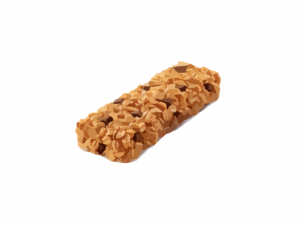Strong Muscles that are Sometimes Sore

Exercises come with discomfort, which can tempt you to give up on your dream of becoming fit. You have to ignore the pain and push yourself beyond the first few weeks of exercising before your body becomes accustomed.
Pain and soreness are common factors that you will experience any time you push your body beyond its normal routine. Changing the intensity and the type of muscle group you are exercising is highly recommended for you to achieve a significant gain from the exercise.
Soreness and pain are not directly related to muscle growth, and it is better to choose your exercises wisely in order to minimize discomfort. Activation of muscles at long muscle lengths results in more soreness, as compared to activation of muscles at short muscle lengths.
Although you cannot completely do away with soreness, it is good to limit it, especially if it becomes severe, by practicing the following tips.
Eat enough proteins
Eating proteins can help to reduce soreness as well as shorten the length of time you will experience soreness. Proteins are responsible for repairing and growing new tissue in your body, so you should eat them adequately when building muscles. The exercises will tear your muscles, and for them to heal in a much faster way, you have to eat proteins in every meal and in good portions. You can also supplement your diet with anabolic steroids, which work best to complement your efforts. You can get them from the Steroids evolution online in the comfort of your home, and start your journey toward growing those abs.
Make light movements
Movements are important in relieving the stiffness and soreness in your muscles because they increase blood circulation, which supplies nutrients to the muscles for faster healing. Soreness can give you discomfort to the extent of not being able to do normal things, like laughing, bending, or even lifting a cup of coffee. You should not give into staying still in bed because you will end up losing all the gains from the exercises you have already done. It is recommended that you make simple movements, like walking and swimming. to reduce muscle soreness.
Warm up with stretches
Stretching before and after exercises will relieve soreness in your muscles, and it is even more important when your muscles become sore. Stretching before the beginning of your exercises can prevent or reduce damage to your muscles. After a hard exercise that leaves your muscles stiff and worked out, stretching relieves stiffness, which in return reduces soreness. In this case, remember that stretching is no longer a form of exercise, but is instead a way of relieving your body. You should not stretch beyond what your muscles can handle.
Use heat treatment
Taking a warm bath after exercising can relieve the discomfort from sore muscles. You should consider swimming in slightly adjusted water temperatures to treat your whole body. This increases your blood circulation, which is necessary for both delivering nutrients to your muscles and removing toxins from your body.
Drink water
Water is a must when you are exercising because your body loses a lot of water through perspiration. When you damage your muscles while exercising, your body needs water to remove those wastes, as it supplies nutrients to build back new cells. Studies have also related increased soreness to dehydration. Drinking water can, therefore, be a great relief to soreness.






